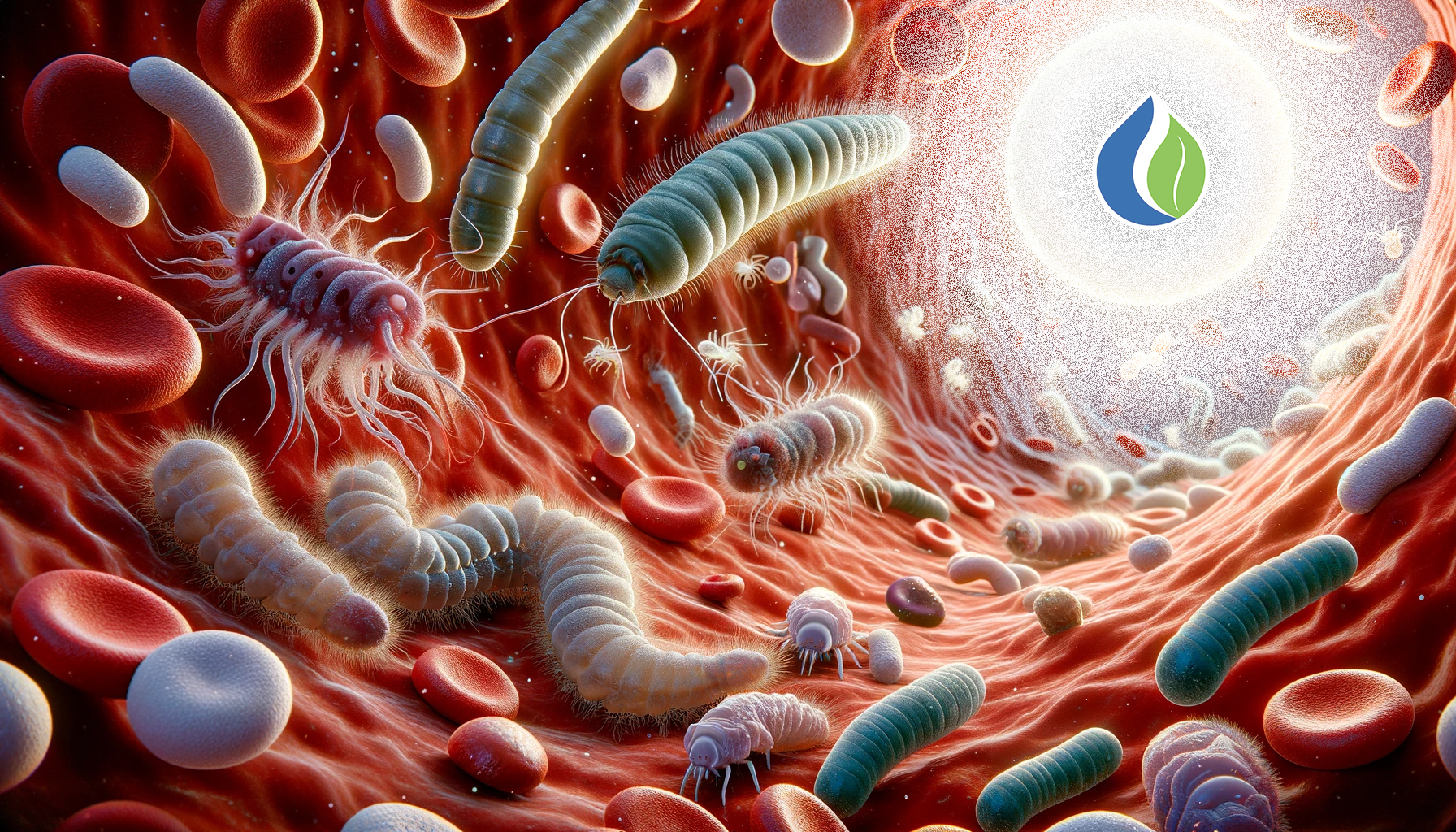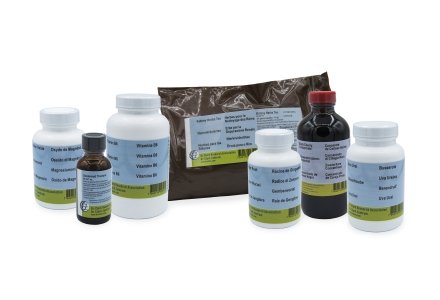
Parasites in our bodies may not be the most pleasant topic to talk about, but it is vital to be aware of their presence and their potential impact on our health. In this comprehensive blog, we will dig deeper into everything you need to know about parasites, including the definition, how we can get infected, symptoms, diagnosis, treatment, prevention, and some popular parasites that can affect our bodies. We will also discuss alternative research methods and treatments so that you are well-informed about your options.
What are Parasites?
Definition of Parasites
Parasites are organisms that live in or on other living organisms and obtain their nutrients at the expense of their host. They can range from microscopic single-celled organisms to much larger creatures such as tapeworms and lice. These parasites can be harmful to the health of their host and can lead to various health problems.
Types of Parasites that Can Infect Our Body
There are several types of parasites that can infect our body, including:
- Protozoa: Microscopic single-celled organisms such as Giardia and Entamoeba that cause infections in the intestines.
- Helminths: Worm-like parasites such as tapeworms, roundworms, and hookworms that can establish themselves in the intestines, lungs, or other parts of the body.
- Arthropods: Parasites like lice, fleas, and ticks that attach to the skin of their host and can cause various skin conditions.
- Ectoparasites: Parasites that are located on the exterior of their host's body, such as mites and scabies.
How Do We Get Infected with Parasites?
Transmission Mechanisms
Parasites can be transmitted in various ways, including:
- Food and water: Consuming contaminated food or water can lead to infections with intestinal parasites such as Giardia and Cryptosporidium.
- Insect bites: Mosquitoes, ticks, and other insects can transmit parasitic diseases through bites.
- Direct contact: Skin-to-skin contact or contact with contaminated surfaces can lead to the transmission of skin conditions caused by parasites such as scabies.
Risk Factors for Parasitic Infections
Some individuals are at a higher risk of parasitic infections than others. Some risk factors include:
- Traveling to endemic areas: Traveling to regions where certain parasitic infections are prevalent increases the risk of infection.
- Poor hygiene: Lack of proper personal hygiene, such as not regularly washing hands, can increase the risk of infection.
- Untreated water: Swimming in lakes, ponds, or other bodies of water without proper hygiene measures can lead to waterborne infections.
- Sources of infection: Having pets, especially if they have access to the outdoors, can increase the risk of parasitic infections.
Symptoms of Parasitic Infections
General Symptoms
The symptoms of parasitic infections can vary, but some general symptoms include:
- Diarrhea
- Abdominal pain
- Nausea and vomiting
- Weight loss
- Fatigue
- Fever
Specific Symptoms Depending on the Type of Parasite
Depending on the type of parasite that has infected the body, specific symptoms may occur. Some examples include:
- Tapeworm infection: Weight loss, abdominal pain, and the presence of worm segments in the stool.
- Malaria: Fever, chills, muscle aches, and severe fatigue.
- Scabies: Itchy skin rash and visible mites under the skin.
Diagnosis and Detection of Parasitic Infections
Medical Tests and Procedures
To diagnose parasitic infections, various medical tests and procedures can be performed, including:
- Stool examination: A sample of stool can be analyzed to detect parasite eggs or larvae.
- Blood tests: Some parasitic infections, such as malaria, can be detected by analyzing blood samples.
- Skin scraping: For skin conditions like scabies, a scraping of the affected skin can be examined under a microscope.
When to Seek Medical Help
If you experience symptoms suggestive of a possible parasitic infection, it is important to seek medical help immediately. Untreated parasitic infections can lead to severe complications and lasting damage to the body.
Treatment of Parasitic Infections
Various Treatment Methods
The treatment of parasitic infections depends on the type of parasite and the severity of the infection. Some common treatment methods include:
- Antiparasitic medications: Doctors may prescribe antiparasitic medications to kill the parasites and treat the infection.
- Hygienic measures: For some parasitic skin conditions, it is important to take good hygienic measures, such as washing clothes and bedding.
The Importance of Medical Advice and Prescriptions
It is essential to seek medical advice before using medication to treat parasitic infections. Using the wrong medications can worsen the situation and cause side effects.
Alternative Treatments with Positive Results
Some people opt for alternative treatments such as the Swing Zapper by Hulda Clark, which is said to kill parasites (in plants...) with electric pulses. Meditech Europe can provide more information on this. On our website, we cannot associate such products with potential effects on the human body, but only discuss them in relation to plants. We recommend reading this blog to better understand the operation of the Swing Zapper, which explains the similarities between plants and mammals.
Prevention of Parasitic Infections
Tips to Prevent Parasitic Infections
Preventing parasitic infections is often better than curing them. Here are some tips to prevent infections:
- Hand hygiene: Wash your hands regularly, especially before eating and after using the toilet.
- Safe drinking water and food: Avoid drinking untreated water and consuming raw or inadequately cooked food in areas with a high risk of parasitic infections.
- Insect repellents: Use insect repellents and protective clothing when traveling to areas where parasitic insects are prevalent.
- Personal hygiene: Keep yourself and your surroundings clean and avoid sharing personal items such as towels.
Popular Parasites in the Human Body
Detailed Information on Some Common Parasites
Let's now delve deeper into some common parasites that can infect our body:
- Giardia lamblia: An intestinal parasite that can cause diarrhea and abdominal pain.
- Plasmodium: Responsible for malaria, a severe disease transmitted through mosquito bites.
- Skin mites: Tiny mites that cause scabies, a contagious skin disease.
Conclusion
In this comprehensive blog, we have covered everything you need to know about parasites in our body, from what they are and how they infect us to the symptoms, diagnosis, treatment, and prevention. It is crucial to be aware of the dangers of parasitic infections and take the right steps to prevent them. While alternative treatments are available, medical advice is always recommended for effective treatment.
At Meditech Europe, we are ready to advise and assist you with any questions or concerns regarding parasitic infections. You can contact us at info@meditecheurope.nl or +31527 292 331.
FAQ
What Are Parasites?
Parasites are organisms that live in or on other living organisms and obtain their nutrients at the expense of their host.
How Do I Get Parasites?
Parasites can be transmitted in various ways, such as through food, water, insect bites, and direct contact with contaminated surfaces.
How Do I Get Rid of Parasites?
The treatment of parasitic infections typically involves prescription antiparasitic medications. However, there are alternative methods available. Make sure you work with a qualified therapist!









